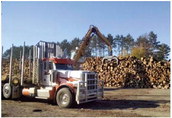Forest future


County approves timber sales, expresses need to ensure future markets
Thanks to competitive bids on all the sales, timber on the Taylor County fo...


County approves timber sales, expresses need to ensure future markets
Thanks to competitive bids on all the sales, timber on the Taylor County fo...